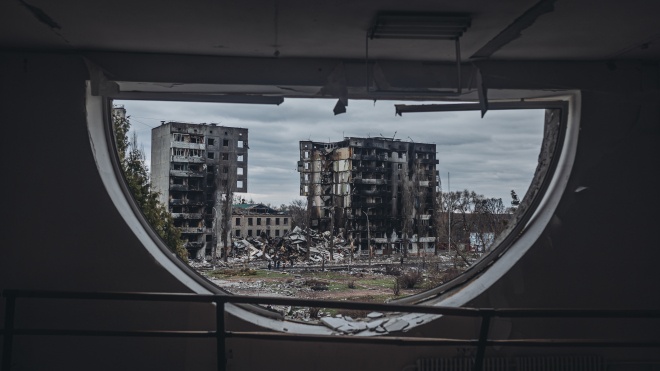What the world wrote about the war in Ukraine on April 8 — a review of publications of leading foreign publications.
Never before have American and British intelligence disclosed the latest information as quickly as they do now, the Financial Times writes. And explains whom to thank for it. The change in US policy was initiated by the chief of US national intelligence Avril Haines and CIA head Bill Burns. The latter has long worked as a diplomat and understands information policy well. Even before the war, the United States published intelligence about Russiaʼs intention to attack Ukraine ― in particular, when and how it was supposed to happen, as well as the planned provocations by Russia. This greatly complicated the task of the Russians, who could not provoke the war unnoticed. Eventually, Britain joined the initiative and, with the start of hostilities, also began publishing intelligence data. The first reason for that was so that Russians had less reason to deny their actions and, in particular, crimes. And the second one is that as many Russians as possible could see the information about their army losses and mistakes in this war and, accordingly, to understand its absurdity better.
Volodymyr Zelensky predicts for Ukraine the future of "Greater Israel" with a focus on security, writes the Atlantic Council think tank. It offers eight principles that must be followed to achieve this. First, indeed, security must be a key priority for the government and any politicians who come to power, because it is a public demand. Secondly, the whole of society must work to ensure this security, not some groups in it. For example, almost all Israelis serve in the military. The third principle is to rely only on oneʼs own strength, the only guarantee of Israelʼs existence is well-functioning self-defense. However, active defense partnerships must also be supported ― and this is the fourth principle. The Atlantic Council also writes about the need for strong intelligence and technological development of the army: both are present in Israel and have given it a significant advantage in recent wars. The seventh principle is related ― it is the construction of innovation-oriented civil society. After all, some of its developments can be used for defense in the future. And the last, eighth principle is to support strong democratic institutions. Israel has provided its ability to resist the enemy and develop, in particular, by the fact that it is not an authoritarian country. "Like Israel in its early wars, Ukraine appears to have fended off an acute existential threat. But the war is far from over. By adapting their country’s mindset to mirror aspects of Israel’s approach to chronic security challenges, Ukrainian officials can tackle critical national-security challenges with confidence and build a similarly resilient state,” stated Daniel Shapiro, author of the article.
Key events of April 8:
Ukraine asserts that what the Russians did in Bucha and nearby settlements is a genocide. However, do the atrocities of the occupiers really fall under this concept? Al Jazeera tried to understand, and a brief conclusion of the article: we need more research into the crimes committed, now talking about genocide as a fact is too early. "Itʼs not just mass murder. Genocide is when the enemy completely destroys a certain social or religious group,” said Ernesto Verdeja, a professor at the University of Notre Dame. This word is often overused, even Putin claimed that Ukraine committed genocide against the Russian-speaking population of Donbass. The International Criminal Court has the right and the tools to decide whether the Russian authorities really organized the genocide in Ukraine. Ukraine has already filed a lawsuit against Russia there.
CNBC writes about a study of the impact of the Russian-Ukrainian war on Asian countries, published by the Global Marketing Intelligence research agency. This region is heavily dependent on energy sources and agriculture from other countries, so the war will make them more expensive. But there are countries that may benefit from rising prices. These are primarily Australia, Indonesia and Malaysia, which produce coal, gas and grain. Pakistan, which exports 80% of its grain from Russia and Ukraine, will suffer the most. Mongolia will have to change its arms supplier, because now it imports all of it from Russia.

